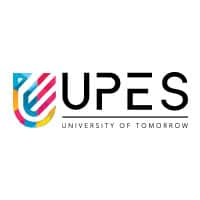FLAME University | MBA 2025
NAAC A++ Grade | Only Indian University member in the Global Liberal Arts Alliance
MBA in Data Analytics is a postgraduate degree programme that equips students with the skills and knowledge to use data-driven insights for making strategic decisions within organisations. MBA in Data Analytics course combines core MBA coursework with a major focus on data analysis, statistics, and data visualisation techniques. Big Data Analytics for MBA course provides knowledge on how to collect, process, and interpret data to solve complex business problems, optimise operations, and identify growth and opportunities.
Online MBA: Complete Guide | Universities That Redefine Online MBA in India
CAT 2025: Preparation Tips | Mock Test Series | VARC Study Material | MCQs
Online MBA Colleges: Symbiosis | Amrita | Manipal | LPU | Chandigarh University
MBA in Data Analytics provides a wide range of job opportunities such as data analysts, business intelligence analysts, and data-driven strategists, bridging the gap between business acumen and data proficiency in today's data-driven world. In this article, we will discuss the MBA in Data Analytics syllabus, eligibility criteria, admission process and scope.
Particulars | Values |
|---|---|
Degree Name | MBA in Data Analytics |
Degree Type | Postgraduate |
Degree Duration | 2 year |
| Semesters | 4 |
Entrance Exams | CAT, MAT, GMAT, CMAT, XAT, NMAT |
Eligibility Criteria | Bachelor’s degree |
Admission process | Direct admission and based on the entrance examination |
Fees | Rs. 20,000 and Rs. 10,00,000 |
Average Salary | Rs. 6,00,000 LPA |
Job profiles | Data Analyst, Data Scientist, Statistician |
Top recruiters | Mu Sigma, Accenture, Latent View, Unmetric, iTechArt, Tableau, Manthan Systems, LatentView Analytics, Oracle, SG Analytics |
MBA in Data Analytics eligibility criteria has different requirements depending on the institute. Individuals with a bachelor's degree who want to continue their studies can enrol in MBA in Data Analytics programmes at a range of management colleges.
NAAC A++ Grade | Only Indian University member in the Global Liberal Arts Alliance
Highest CTC: INR 28.25 LPA | Average for Top 100 offers: INR 17.34 LPA | Ranked #63 in India under Management category by NIRF | 148 Recruiters
The MBA in Data Analytics admission process varies depending on the institution. Students can apply by visiting the institutions to get admission into MBA in Data Analytics. Students enrolling to colleges and universities on a first-come, first-served basis. Most institutions admit students into MBA in Data Analytics courses based on students' performance or cut-off scores on a qualifying examination.
The success of an applicant on relevant entrance examinations determines admission to various universities and colleges. Here is a list of the best MBA in Data Analytics entrance exams.
Exam Name | Level | Conducting Body | Exam Schedule |
|---|---|---|---|
National | IIM Lucknow | ||
National | All India Management Association | ||
National | XLRI Jamshedpur | ||
National | National Testing Agency | ||
National | Graduate Management Admission Council |
A set of rules is used to determine the merit score for an MBA Data Analytics programme. Those who meet the MBA Data Analytics cut-off percentage are allowed to continue the study. The MBA Data Analytics cutoff varies according to the institution and is based on the number of applicants and their admissions exam scores.
In order to understand difficulties and enhance their capabilities, individuals interested in pursuing an MBA Data Analytics programme should have a diverse set of specialised skills. These abilities are also required for advancement and a promising future. Students can improve their abilities and expertise by enrolling in a Data Analytics for MBA programme.
Communication Skills | Strategic thinking |
Programming skills | Leadership Skills |
Database knowledge | Analytical skills |
Depending on the school, an MBA in Data Analytics follows a different academic path. As a result, the MBA Data Analytics coursework may resemble that of other Data Analytics courses while still maintaining its own unique course structure. The curriculum of Career Point University's MBA in Data Analytics and Data Visualisation has been discussed below.
Semester 1 | Semester 2 |
Overview of Data Science, Data Analytics and AI | Statistics and Advanced Data Analytics |
Semester 3 | Semester 4 |
Project and Case Studies | |
Data Analysis and Visualisation, Consumer behaviour Analytics Tools and Tech | - |
The majority of the MBA in Data Analytics fee is determined by the school management. Private universities may charge significantly higher tuition than public colleges. An MBA in Data Analytics costs around Rs. 20,000 and Rs. 10,00,000.
For the majority of MBA students, data science and analytics have become one of the most appealing employment possibilities. The scope of MBA Data Analytics is fascinating and offers numerous possibilities. The difficult challenge requires the use of a wide range of commercial and technical expertise that is mostly merit-based. In India, there is a vast array of data-related industries. Qualified and experienced tech experts often use data science. The advantages are excellent, as are the prospects for advancement.
Individuals with a Data Analytics MBA can pursue a Ph.D. in the same discipline. Students must continue to broaden their knowledge as they pursue higher-paying employment.
The MBA in Data Analytics is aimed to provide students with a broad understanding of all facets of the business. Its goal is to teach people how to turn unstructured, semi-structured, and fully organised data into actionable insights using a variety of methodologies. A master's degree in data analytics can lead to a variety of careers.
Data Analyst: A data analyst converts numbers into English from data collected by the company. He or she analyses the data first, and then uses a variety of methods to interpret the results. A data analyst typically collaborates with the company's management or IT department, but they may also collaborate with other data scientists.
Data scientist: Data scientists collect and analyse massive amounts of data from a variety of sources. Data scientists learn analytical and programming abilities that are relevant to this particular industry. A data scientist's profession entails computer science, math, and statistics.
List of Top Companies
| Mu Sigma | Absolut Data |
| Accenture | Tableau |
| Absolut Data | Manthan Systems |
| Latent View | LatentView Analytics |
| Unmetric | Oracle |
| iTechArt | SG Analytics |
For data scientists who analyse numbers and statistics, data analytics makes a significant contribution and allows for more efficient communication. Candidates who complete the MBA in data analytics programme with a data science specialisation will be prepared for roles in strategy development, business development, risk management, strategy consulting, and financial regulation. MBA programmes teach students how to make strong business decisions and give individuals opportunities to improve their leadership qualities.
A Master of Business Administration in Data Analytics is a fantastic alternative for someone with less than a year of relevant work experience. On average, management students with less than a year of experience can expect to earn Rs. 70,000 per month. After acquiring experience, candidates could earn up to Rs. 1,50,000 per month. Data Analysts can expect to earn around Rs. 4,00,000 after five years of expertise.
| Job Profiles | Average Salary |
|---|---|
| Data Analyst | Rs. 4.2 LPA |
| Data Scientist | Rs. 9.4 LPA |
MBA in Data Analytics courses in India help students to excel in their careers. A degree in MBA in Data Analytics can equip students with the knowledge and skills to help them pursue jobs in various industries such as finance, healthcare, hospitality, logistics, and consultancy.
An MBA in Data Analytics teaches students how to transform disorganized, semi-structured, and fully structured data into actionable insights.
By combining machine learning algorithms and automation, data analytics courses teach students how to analyse datasets in order to identify patterns of important insights from a raw set of data. In the realm of data analytics, Machine Learning and Python are the current major topics.
An MBA in Data Analytics programme costs between Rs. 20,000 and Rs. 10,000, depends upon the type of university.
A bachelor's degree in any specialisation from a recognised university is required for an MBA in Data Analytics.
The MBA in Data Analytics is a two-year-long programme.
Communication Skills, Strategic thinking, Programming skills, Leadership Skills, Database knowledge, Analytical skills are some of the skills required for an MBA in Data Analytics.
Some of the top colleges which offer MBA in Data Analytics degrees are SCIT Pune - Symbiosis Centre for Information Technology, MIT College of Management, Pune, JECRC University, Jaipur, Centurion University of Technology and Management, Bhubaneswar, RGIPT Amethi - Rajiv Gandhi Institute of Petroleum Technology, SRM School of Management, Kattankulathur.
There are various career options after an MBA in Data Analytics. Some of the careers are Data Analyst, Data Scientist.
A few of the leading companies that hire MBA in Data Analytics graduates are Mu Sigma, Accenture, Absolut Data, Latent View, Unmetric, iTechArt, Absolut Data, Tableau, Manthan Systems, LatentView Analytics, Oracle, and SG Analytics.
Individuals who've already earned an MBA in Data Analytics can apply for a Ph.D. in Data Analytics.
Late Fee Application Date:15 April,2025 - 19 April,2025
Pearl Academy – MBA in Fashion & Lifestyle Business Management
Duration: 2 years
Campuses: New Delhi, Mumbai, Bengaluru
Eligibility: Bachelor’s degree in any discipline
Admission: Pearl Academy Entrance Exam + Interview
Fees: ~11.85 lakhs
Key Highlights
Global Collaborations – Partnerships with LDT Nagold (Germany) & Manchester Met (UK)
Practical Learning – Industry projects, masterclasses, case studies
Capstone Project – Real-world business challenge in final year
Career Opportunities
Retail Buyer, Brand Manager, Visual Merchandiser, Luxury Retail Manager, Marketing Strategist
Hi aspirant,
1. The cost of an MBA course in India can range from INR 1.5 lakh to INR 30 lakh and more, depending on the college and program type.
2. Additionally, depending on the program and college, the deadlines for MBA admissions vary, with some extending them to June and others having them due in April.
https://bschool.careers360.com/articles/mba-fee-know-how-much-your-mba-will-cost-in-top-b-schools
Kindly refer to this link for more information on the same.
All the best!
Hello,
achieving a 99.99 pecentile in the CAT exam significantly enhances your prospects for admission to JBIMS, which evaluates candidates using an application rating(AR) score, which includes
-entrance exam score (CAT/MH-CET/CMAT) : 60% weightage
-Past Academic Record (PAR) : 15% weightage (https://cracku.in/colleges/jbims/admission-process/?utm_source=chatgpt.com)
-Extra-curricular Activities/Work Experience : 20% weightage (https://jbims.edu/uploads/announcement/Revised_M_Sc__Finance_Admission_Procedure_Batch_2024-26.pdf?utm_source=chatgpt.com)
-Diversity (Academic/Gender): 5% weightage
while ahigh CAT percentile is crucial, a lower academic record may impact your overall AR score. Nonetheless, exceptional performance in other areas, such as entrance exams and extracurricular activities, can help offset weaker academic credentials. it's advisable to review JBIMS's detailed admission criteria and consider strengthening other aspects of your application to enhance your chances
Hello Ankush,
No, it won't create any problem if you take MBA admission using your B.Com (//B.Com) migration certificate. Dropping M.Com (//M.Com) from AOL doesn't affect your eligibility for MBA. just ensure your B.Com (//B.Com) documents are valid and complete for verification at IIM.
Hope this message finds you well,
Thank You.
Hello there,
Here are some of the
best colleges for MBA in India
, ranked based on academic excellence, placements, faculty, and national reputation:
Top MBA Colleges in India (2025)
IIM Ahmedabad
IIM Bangalore
IIM Calcutta
IIM Lucknow
IIM Kozhikode
Entrance Exam: CAT
Fees: Approx. Rs. 20–25 lakh
Offers: PGP (equivalent to MBA)
Exam: GMAT/GRE
Fees: Approx. Rs. 35–40 lakh
Entrance: CAT
Very low fee: Approx. Rs. 2 lakh
Excellent ROI
Exam: XAT
Known for HR and Business Management programs
Exam: CAT/XAT/GMAT
Industry-integrated programs and international exposure
IIT Delhi (DMS) , IIT Bombay (SJMSOM) , IIT Kharagpur (VGSoM)
Exams: CAT
Lower fees and good placements
Known for International Business
Exam: IIFT Entrance Test
Exam:
NMAT
Tip:
Choose a college based on your entrance exam score, budget, location preference , and career goals .
I hope this answer helps you. If you have more queries then feel free to ask. We will be happy to assist you.
Thank You and wishing you a bright future ahead.

Amongst top 3% universities globally (QS Rankings)

MBA @ P P Savani University | NAAC A+ Grade | 100% Placement Assistance | Apply Now

Highest CTC: Rs 18.33 LPA | Average CTC: Rs 7.39 LPA | Experiential Learning | Classes by Industry Professionals | Alumni Mentorship Program

Ranked #41 amongst institutions in Management by NIRF | 100% Placement | Last Date to Apply: 28th April
International Tie Ups | Project Based Learning | State of the art infrastructure | Applications Closing Soon!
NBA Accredited | AICTE Approved | Avail 50% Off on Application Forms | Last Date: 19th Apr’25 | Use Code: Careers360